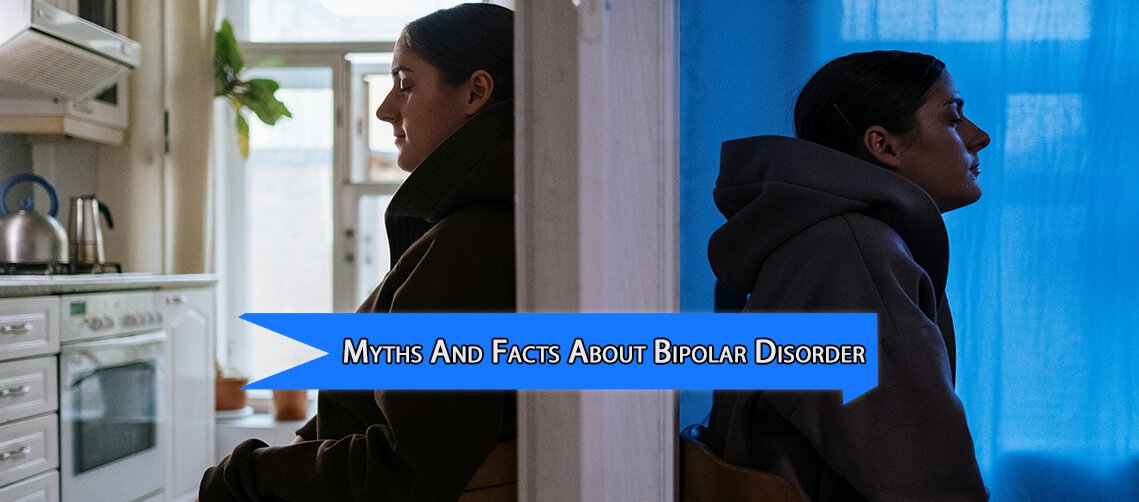We live in a world full of mental health memes, armchair diagnoses, and well-meaning but totally misinformed advice. And if there is one condition that is constantly misunderstood, it is bipolar disorder. You have probably heard someone casually say, “Ugh, I am so bipolar today,” because they could not decide what to wear. Or maybe you have seen a character in a movie. But bipolar is not a punchline, a personality quirk, or a dramatic flair. It is real. It is complicated. And yeah, it can be incredibly hard, but also manageable. Even meaningful. At Psychoaura, we believe in breaking the stigma and shedding light on the true nature of mental health conditions. In this blog, we will explore some myths and facts about bipolar disorder.
MYTHS AND FACTS ABOUT BIPOLAR DISORDER
- Myth: Bipolar disorder is just related to mood swings.
- Myth: You can call someone bipolar by looking at them.
- Myth: People with bipolar disorder are always unstable.
- Myth: Mania is just a fun, energetic high.
- Myth: It only affects adults.
- Myth: If you are productive, you cannot be bipolar.
- Myth: Taking medicines means you are weak.
- Myth: You can just “think positive” and fix it.
More
- Myth: You are either manic or depressed.
- Myth: People think once they feel better, they can stop treatment.
- Myth: You are being dramatic.
- Myth: It is impossible to work with a bipolar person.
- Myth: All depressive episodes look like sadness.
- Myth: You have to deal with it alone.
- Myth: Some people think that if we relapse, it means we failed.
FAQs
Can people with bipolar disorder live normal lives?
People with bipolar disorder can build beautiful, stable, real lives which is full of love, work, creativity, family, and purpose. The journey might have some extra twists and turns, and yes, it requires self-awareness and support. But so many people are out here living, thriving, creating, parenting, laughing with bipolar, not despite it.
Do I have to take medication?
When it comes to mental health, there is no one-size-fits-all answer. But for many people, meds are a lifeline, something that steadies the highs and cushions the lows. It is not about numbing you; it is about giving your mind a little more peace and predictability. And that can make a huge difference. As we explore the Myths And Facts About Bipolar Disorder, it becomes clear that therapy, sleep, routines, and support are also important. Healing is a toolbox, not just one thing.
What does a bipolar episode actually feel like?
Mania can feel like being plugged into a lightning bolt. Your brain is racing, your ideas feel urgent, and sleep feels optional. It can feel thrilling until it is not. Depression can feel like everything is muted; even breathing takes effort. And sometimes, it is both at once, wired but hopeless. These are not “mood swings”. They are full-body, full-mind experiences that deserve understanding, not judgment.




